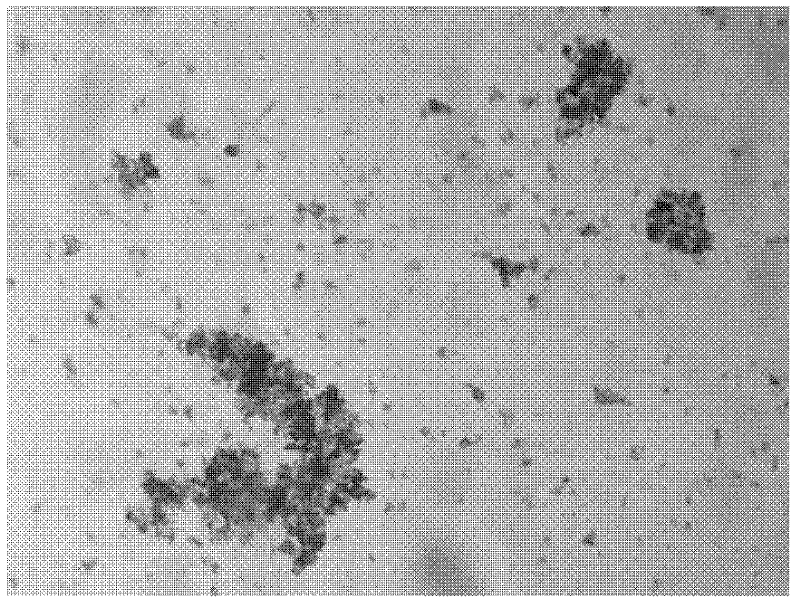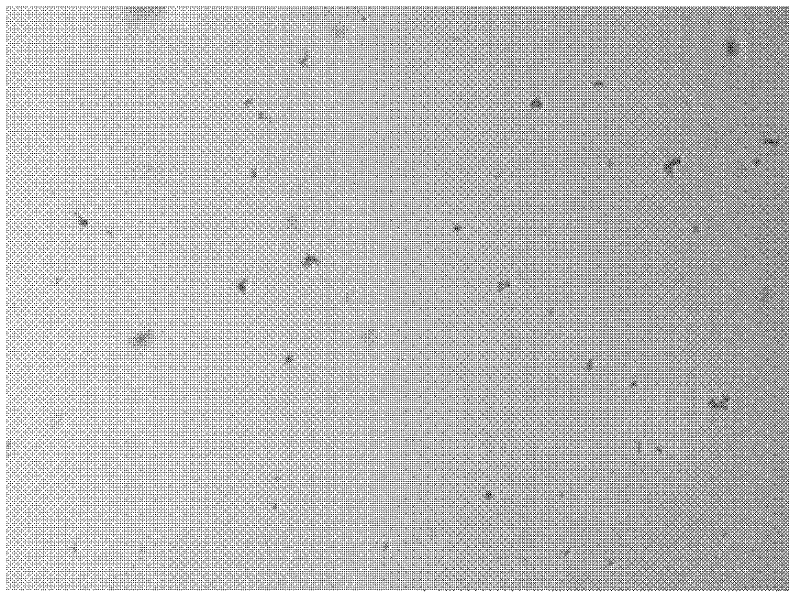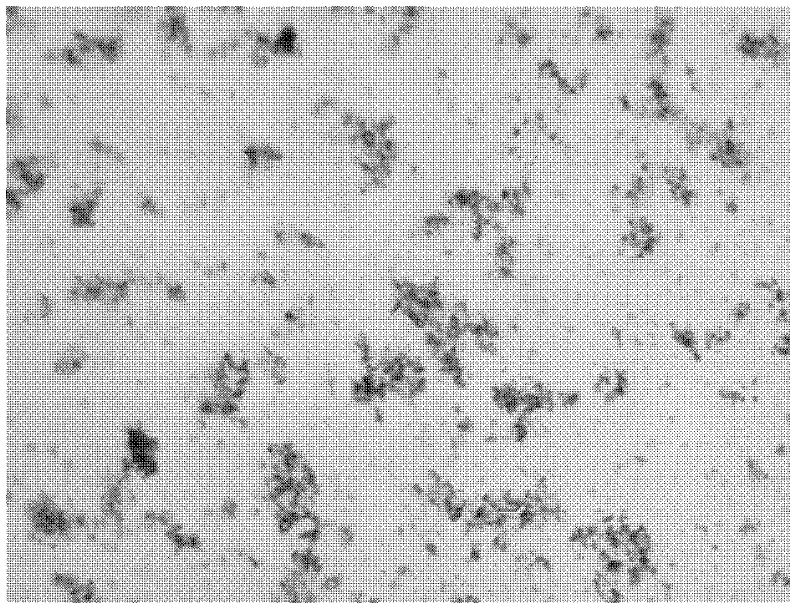Preparation of chitosamine-selenium nanometer trace-element nutrition regulator
A nutritional regulator and trace element technology, applied in food preparation, sulfur/selenium/tellurium active ingredients, food science, etc., can solve problems such as poor absorption effect, reduce molecular weight, improve material antioxidant capacity, and improve absorption effect of effect
- Summary
- Abstract
- Description
- Claims
- Application Information
AI Technical Summary
Problems solved by technology
Method used
Image
Examples
Embodiment 1
[0053] ① Configuration solution: dissolving sodium selenite in 75% ethanol solution to configure a sodium selenite solution with a mass fraction of 12.5%; weigh chitosan and dissolve it in distilled water to configure a mass fraction of 8% chitosan solution;
[0054] ② Take 50ml of chitosan solution and 40ml of sodium selenite solution prepared in step ①, mix the two, add 10mg of surfactant sodium dodecylsulfonate, and stir magnetically for 30min;
[0055] ③Pulse ultrasonication for 15min at room temperature to obtain a crosslinked and uniformly dispersed chitosan-selenium nanosphere suspension.
Embodiment 2
[0056] The experimental effect of embodiment 2 leaf spraying, root application reagent
[0057] Leaf spray: Foliar fertilization is an indispensable auxiliary measure in fruit fertilization, and it has been used as a routine measure in the production of high-quality fruit. The nutrient absorption of foliage spraying is faster than that of soil fertilization, which can quickly overcome the nutrient symptoms of fruit trees. The amount of nutrient absorption and utilization is high, and it is not affected by the nutrient absorption center. It can meet or adjust the urgent needs of trees in the critical period of fertilizer. Overcome the defect of slow root absorption of nutrients, increase yield and quality. There is no soil fixation of nutrients compared to soil fertilization resulting in reduced availability and loss to soil leaching.
[0058] Root fertilization: When fertilizing the roots, the edge of the crown projection and a little far away should be the main area, so that...
Embodiment 3
[0066] The regulation of embodiment 3 different concentration reagents to fruit growth
[0067] ① Use the method of spraying leaves with different concentrations of reagents and blanks as controls, and observe and record the final maturity as follows;
[0068] ② The method of spraying leaves is compared with different concentrations of reagents and blanks, and observations are made every week and recorded as follows;
[0069] Table 3. The method of spraying leaves with different concentrations of reagents and blanks as controls. Comparison after maturity
[0070]
[0071] Table 4 uses the method of blade spraying to compare different concentrations of reagents and blanks as controls
[0072]
[0073] Experimental conclusion: For the same fruit tree, the spraying of different concentrations of reagents has different effects on fruit growth regulation. It can be seen from Table 3 and Table 4 that the effect of concentration 2 is stronger.
PUM
 Login to View More
Login to View More Abstract
Description
Claims
Application Information
 Login to View More
Login to View More - Generate Ideas
- Intellectual Property
- Life Sciences
- Materials
- Tech Scout
- Unparalleled Data Quality
- Higher Quality Content
- 60% Fewer Hallucinations
Browse by: Latest US Patents, China's latest patents, Technical Efficacy Thesaurus, Application Domain, Technology Topic, Popular Technical Reports.
© 2025 PatSnap. All rights reserved.Legal|Privacy policy|Modern Slavery Act Transparency Statement|Sitemap|About US| Contact US: help@patsnap.com



